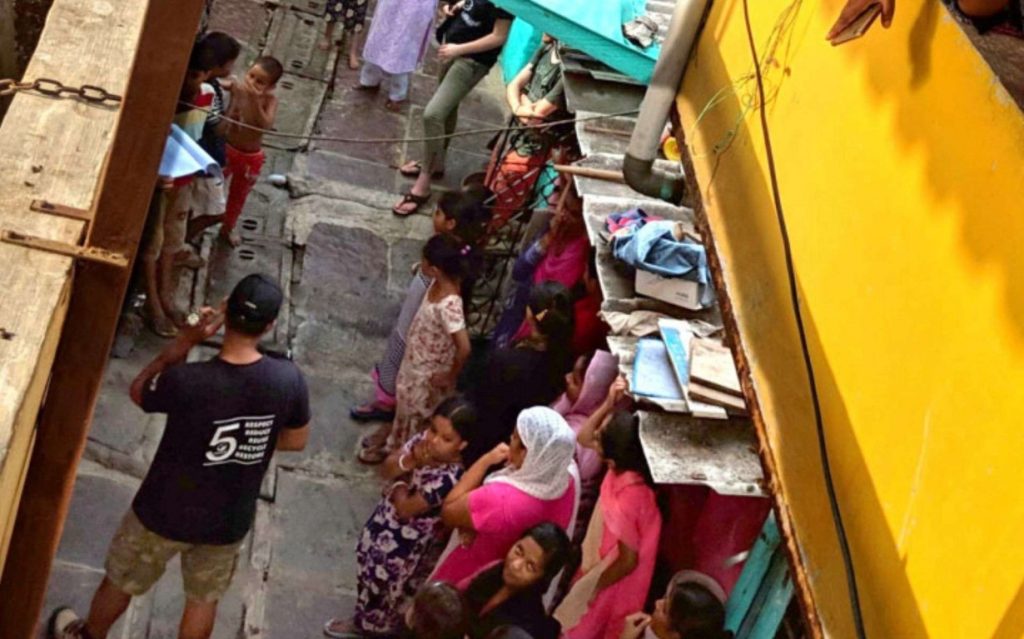It’s equally important to know how to save the money as important it is to earn it
On 17 May 2018 Earth5R team consisting of Kunj Shah, Emily Griffin (United States), Alan Watterman (Belgium), Ishit Patel, Ketul Patel and Saurabh Gupta from Mumbai based environmental organisation Earth5R visited the Mannubhai chawl located in Chandivali for livelihood skills training and financial literacy for communities.
It is believed that digitalization is the need of the time where one needs to upgrade himself to stay match to the current pace of the global development. Seeing this as a social responsibility the team decided to promote financial literacy. The community women were informed on how they can open banks account. What were the documents required to open up an account, about zero balance accounts and small account. What are the current interest rates offered with the government schemes for the underprivileged people.
Earth5R team trained the women on how they could earn a livelihood by making handcrafted products out of paper and cloths using upcycling techniques. Earth5R sets up a supply chain and provided access to the market for the products made by underprivileged communities under it’s ACT Powai program.
People living in a very vulnerable society, the risk of diseases and mishappenings are very common. They were also informed on insurances and how it can be helpful during critical periods of their families.
Mumbai based Environmentalist Saurabh Gupta discussed their living conditions and the problems they face due to lack of basic necessities of life. The list of the problems was humongous. One of which was drainage systems which were never cleaned by the government despite complaining many times. This led to blockages and overflow of the drainage which were self-cleaned by hands of women staying in the chawl.
Kunj Shah volunteer of Earth5R educating community members on different types of insurances and bank accounts.
Sanitation came up to be an issue too as there were only 24 toilets for men and women combined. The public toilets are shared in between 600 people living in the chawl. Further, it was discovered that there was no proper waste disposal system in the chawl each household were forced to dispose of household waste in the small pond across the street.
To these problems, the decisions were taken by the team to talk to the municipal heads and to install no. of dustbins from where regular garbage collection would take place. Also to request the government to make more no. of toilets to fulfil the needs of people as of now they defecate in open.
The average count of young girls living in the chawl was taken and are to be provided with vocational skills training like Tailoring, Mehndi, Cosmetology etc. with help of professionals which will help them to emerge as independent and self-empowered individuals. This initiative is aiming towards the holistic development of the society and sustainable development of communities.
The livelihood training and financial literacy conducted by the team was part of Earth5R’s ACT. Powai project.
– Reported by Kunj Shah and edited by Ketul Patel




